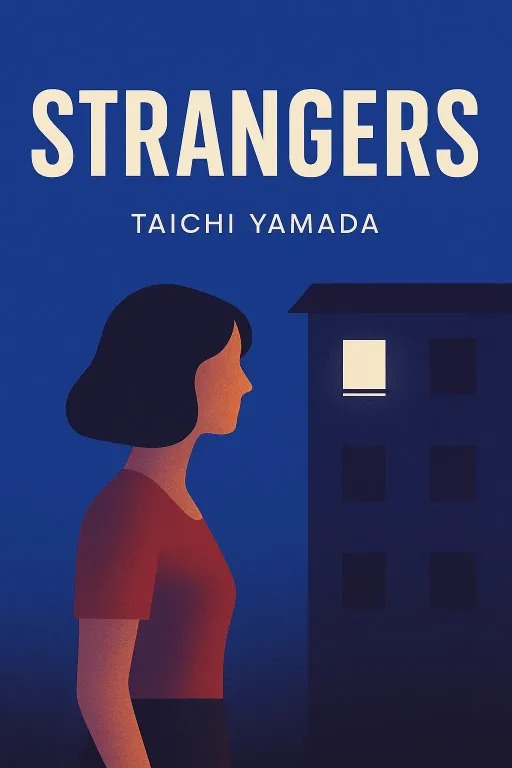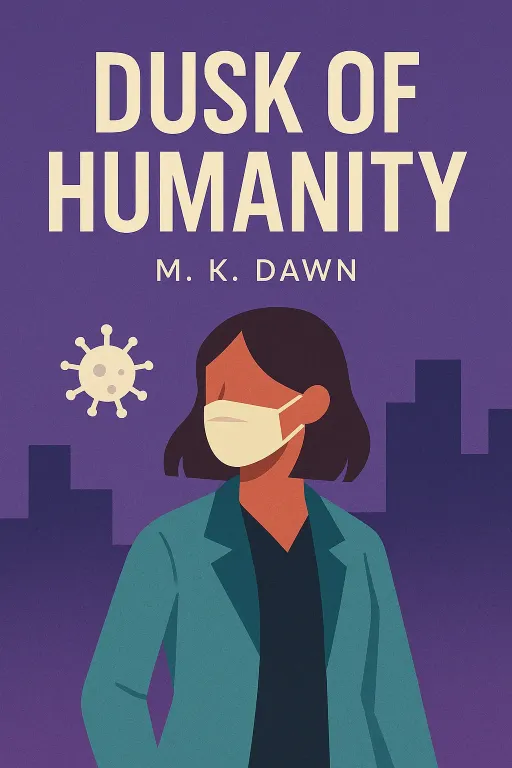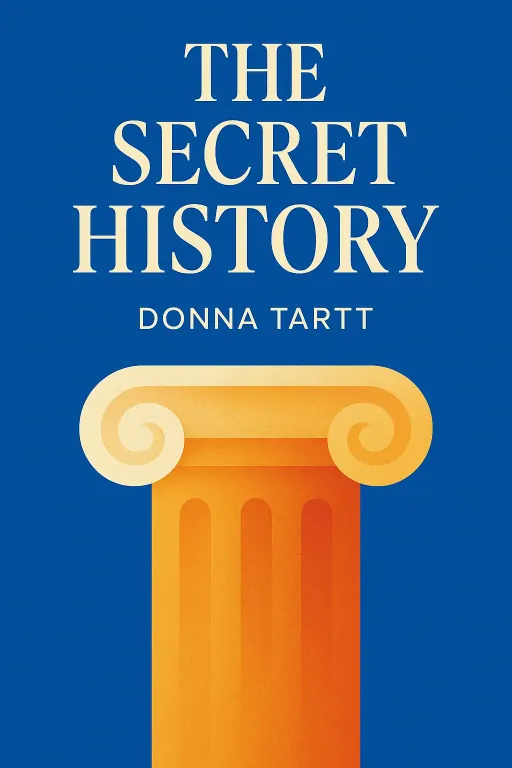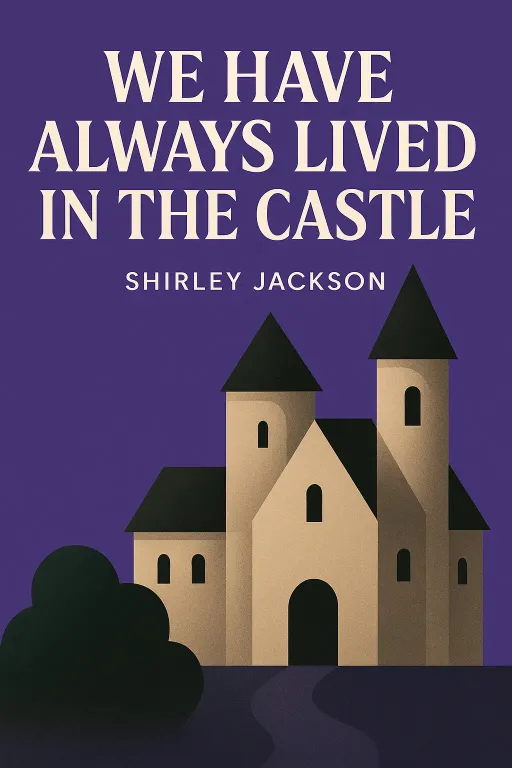
The Comfort That Kills
11 minGolden Hook & Introduction
SECTION
Daniel: Most ghost stories are about fear. But what if the most terrifying ghost story is actually about comfort? About a haunting so seductive, you’d willingly let it kill you just to feel at home one last time. Sophia: Whoa. That’s a heavy opening. A comfort that kills you? That sounds less like a ghost story and more like my relationship with late-night pizza. But seriously, that’s a fascinating paradox. Usually, you run from the haunting, you don't invite it in for tea. Daniel: Exactly. And that’s the chilling question at the heart of Taichi Yamada's novel, Strangers. Sophia: Ah, Yamada. He is such a fascinating figure. He was a hugely successful TV scriptwriter in Japan before he wrote this, which makes so much sense. The book reads with the tight, psychological pacing of a great TV drama. Daniel: It absolutely does. And it won the prestigious Yamamoto Shugoro Prize, cementing its place as this classic 'thinking man's ghost story.' It’s not about jump scares; it’s about a slow, creeping dread that gets under your skin. The story follows Hideo Harada, a middle-aged, recently divorced TV scriptwriter. He’s living in this big, modern office building in Tokyo that’s completely deserted at night. He’s utterly, profoundly alone. Sophia: I can feel that quiet. It's the kind of silence that feels loud, you know? The kind where you start hearing noises that aren't there. It’s the perfect breeding ground for… well, for strangers. Daniel: Or for ghosts. Because Hideo’s loneliness isn't just a feeling. It’s an invitation.
The Ghosts of Grief: Loneliness as a Haunting
SECTION
Sophia: So this loneliness... it's more than just being alone, right? It feels like an active presence in the story, something that’s pulling things out of the woodwork. Daniel: It’s the central force. The story really kicks off on Hideo’s 48th birthday. He’s feeling particularly adrift, so he decides to visit Asakusa, his old childhood neighborhood. It’s a place full of memories, but also a place that’s changed, a symbol of that fading, traditional Tokyo. Sophia: A pilgrimage to his own past. I get that. You go looking for a piece of yourself you think you lost. Daniel: And he finds more than a piece. He wanders into a traditional variety hall, a comedy theater, and in the audience, he sees a man who is the spitting image of his father. Sophia: Oh, man. Not just someone who looks a bit like him? Daniel: An exact double. Same mannerisms, same way of laughing. Hideo is so shaken he can’t focus on the show. And when the show ends, this man approaches him. He invites Hideo for a drink, and Hideo, against all logic, just… goes. Sophia: I mean, who wouldn't? Curiosity alone would make you follow. You have to know. Daniel: They walk to a small, shabby apartment nearby. The man opens the door, and a woman comes out to greet them. And Sophia, she looks exactly like Hideo’s mother. Sophia: Wow. Okay, that’s… that’s a gut punch. Daniel: And here’s the truly chilling part. His parents died in a car crash when Hideo was twelve. So the people he’s looking at are not old. They are frozen in time, the same age they were when they died. His father is younger than Hideo is now. Sophia: That is so heartbreaking and terrifying at the same time. He knows they can't be real, but he goes along with it? Why? Daniel: Because the pull of that comfort is overwhelming. He steps inside, and for the first time in thirty-six years, he feels like he’s home. They serve him drinks, they chat, they fuss over him. It’s a perfect, impossible reunion. He’s a lonely, middle-aged man who gets to be a child again, cared for by his parents. Sophia: Who wouldn't take that deal? A few more hours with people you've lost. It’s a fantasy so powerful, I think your brain would do anything to protect it. You’d ignore every red flag. Daniel: And that’s the core of this first part of the haunting. The ghosts aren't menacing. They aren't rattling chains or whispering threats. They are offering unconditional love and a return to a time before grief. They are the ultimate comfort food for a starving soul. Sophia: It’s a brilliant psychological setup. The horror isn't that the ghosts are there; the horror is that he wants them to be there. He needs them. Daniel: He becomes addicted to the feeling. He starts visiting them regularly, lying to his new girlfriend, Kei, about where he’s going. He’s living a double life: one in the real, lonely world, and one in this warm, impossible past. Sophia: It’s like an emotional affair with the afterlife. But you just know there’s a catch. There’s always a catch with ghosts. And with comfort that feels that good. Daniel: And that's the seductive trap. Because that comfort, that beautiful illusion of family, comes at a horrifying price.
The Vampire of the Past: When Memory Drains the Present
SECTION
Sophia: Okay, here it comes. I knew it was too good to be true. What’s the price tag on hanging out with your dead parents? Daniel: His life. After each visit to the apartment in Asakusa, Hideo feels weaker. At first, it’s subtle. But soon, it becomes dramatic. His colleagues start noticing. The producer of his TV show pulls him aside, telling him he looks dreadful, like he’s lost a ton of weight. Sophia: But does he see it himself? Daniel: No. That’s the terrifying part. He looks in the mirror and sees his normal, healthy self. But everyone around him sees a man who is wasting away. He looks, as one character puts it, "deathly pale and haggard." Sophia: That is genuinely scary. The disconnect between his reality and everyone else's. It’s like the ghosts are putting a glamour on him, making him blind to his own decay. Daniel: It’s a perfect metaphor for being trapped in the past, isn't it? You feel fine, you feel comforted by your nostalgia, but in the real world, you’re fading. You’re not present. You’re becoming a ghost yourself. The book taps into this ancient folklore idea of spirits or vampires feeding on the life force of the living to sustain their own existence. His parents aren't evil; they're just… hungry. And he is their only source of nourishment. Sophia: So his grief has literally manifested as a parasitic relationship. He’s feeding his memory of them with his own vitality. That is dark. But what about the girlfriend, Kei? She’s his connection to the present, right? She must be the one to save him. Daniel: Well, that’s where the story delivers its second, and arguably more shocking, twist. Kei is a young, beautiful woman who also lives in his nearly-empty building. She shows up at his door one night, lonely and looking for company. It seems like a lifeline. Sophia: Hold on. A beautiful, mysterious, and lonely woman just happens to live in the same empty building and shows up at his door? That feels… a little too convenient. Like a fantasy of a different kind. Daniel: Your instincts are spot on. A colleague of Hideo’s, a man named Mamiya, becomes deeply concerned about Hideo’s deteriorating health. He starts investigating and talks to the building manager. He learns that the woman who used to live in Kei’s apartment, a woman named Katsura Fujino—whose name can also be read as Kei—committed suicide there. Sophia: Oh no. Don't tell me. Daniel: Yes. Kei is also a ghost. Sophia: What? Hold on. So everyone he gets close to is a ghost trying to kill him? That feels... a little on the nose, doesn't it? I know some readers found that twist to be a bit much. Daniel: It’s definitely a point of debate. Some critics and readers feel it shifts the story from a nuanced exploration of grief into a more conventional revenge-horror plot. But from another angle, it powerfully reinforces the central theme. Hideo is so hollowed out by his loneliness and unresolved past that he can no longer form a healthy, living connection. All intimacy has become a form of consumption. His parents consume him out of a kind of love, a need to exist. Kei, the ghost of a lonely suicide victim, wants to consume him out of bitterness and a desire for company in death. Sophia: So it's like his grief has made him a magnet for different kinds of emotional vampires. One is a warm, familial haunting, and the other is a cold, desperate one. He’s so vulnerable that he attracts these predators of the soul. Daniel: Exactly. The climax is this terrifying confrontation. Mamiya is trying to save Hideo, and the ghost of Kei appears. She’s no longer the charming, vulnerable woman. Her eyes are cold, and she tells Hideo, "I’ll drag you down with me." Sophia: Chills. Absolute chills. So how does he escape? Daniel: In a fascinating turn, she can’t touch him. She tells him that by the time he came to face her, his heart was already far away. His love for her, which was his lifeline, had already waned. Her power over him was tied to his emotional investment, and it was gone. She fades away, leaving him saved, but utterly broken and alone.
Synthesis & Takeaways
SECTION
Sophia: Wow. So in the end, he loses everyone. The living, the dead, all of it. He’s left with nothing. So what's the final message here? That grief is dangerous and you should just get over it? That seems too simple. Daniel: I think it's more profound than that. The book suggests that unprocessed grief leaves a vacuum. A void. And nature—or in this case, the supernatural—abhors a vacuum. Hideo's ghosts, both his loving parents and the vengeful Kei, are just filling the void he never dealt with after his parents' death. He built a life, got married, had a son, but that core wound was never healed. Sophia: So the real horror isn't the ghosts themselves, but the emptiness that invited them in. They’re just a symptom of a deeper spiritual sickness. Daniel: Precisely. The novel is a powerful, haunting warning about the danger of living in the past. Nostalgia can be a beautiful thing, but when it becomes a refuge from the present, it stops being a memory and starts being a tomb. Hideo was so busy tending to the ghosts of his past that he didn't realize he was becoming one himself. Sophia: It’s a story about the necessity of goodbyes. He had to learn to say a real goodbye to his parents, not just keep them alive as these perfect, ageless idols. And he had to let go of the fantasy of Kei to survive. He had to choose the messy, imperfect, and sometimes lonely reality of being alive. Daniel: The book leaves you with this chilling question: what ghosts are you keeping alive, and what are they costing you? Sophia: That's a heavy one. It makes you think about all the little ways we cling to the past at the expense of the present. I'd love to hear what our listeners think. Does the story feel more like a tragedy about grief or a straight-up horror story? Let us know your take. Daniel: This is Aibrary, signing off.


